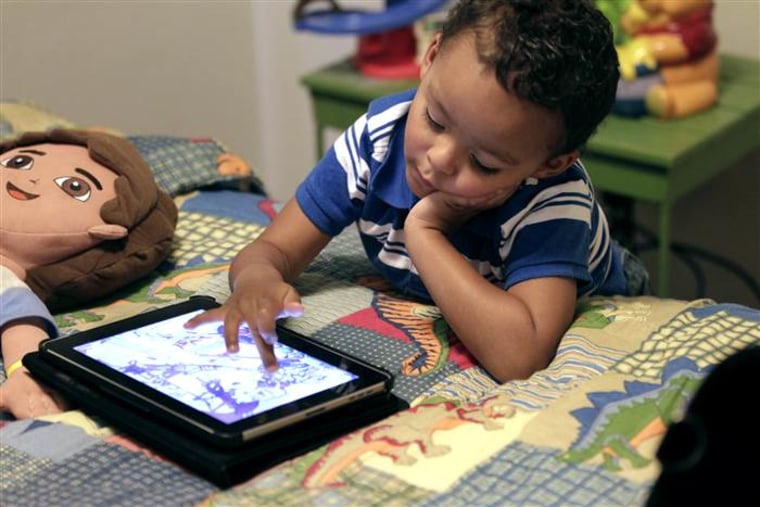Just when you think you’ve finally got those screen time guidelines down, you might want to hold off on confiscating your toddler’s iPad.
The American Academy of Pediatrics has tinkered with its recommendations, which used to advise that children, ages two and under, have no exposure to screens and older kids have a limited screen time of up to a two hours a day.
In a statement, the AAP says the new, more nuanced, guidelines are a result of the fact that “scientific research and policy statements lag behind the pace of digital innovation.” So last spring, the AAP convened a panel of scientific experts to evaluate data, identify research gaps, and provide advice to parents based on the evidence.
Here, five of the new guidelines with explanations from the AAP’s panel of experts. The complete list of guidelines can be found here.

1. Be the parent and be a role model. “The same parenting rules apply to your children’s real and virtual environments. Play with them. Set limits; kids need and expect them. Be involved. Also, limit your own media use, and model online etiquette. Attentive parenting requires face time away from screens."
2. We learn from each other. “Neuroscience research shows that very young children learn best via two-way communication. Talk time between caregiver and child is critical for language development. Passive video presentations do not lead to language learning in infants and young toddlers.”
3. Content matters. “The quality of content is more important than the platform or time spent with media. Prioritize how your child spends his time rather than just setting a timer.”
4. Be engaged when your kids are using technology. “Family participation with media facilitates social interactions and learning. For infants and toddlers, co-viewing is essential.”
5. It’s OK for your teen to be online. “Online relationships are integral to adolescent development. Social media can support identity formation. Teach your teen appropriate behaviors that apply in both the real and online worlds. Ask teens to demonstrate what they are doing online to help you understand both content and context.”
What are your thoughts on kids and screen time? Take our survey and let us know where you stand.